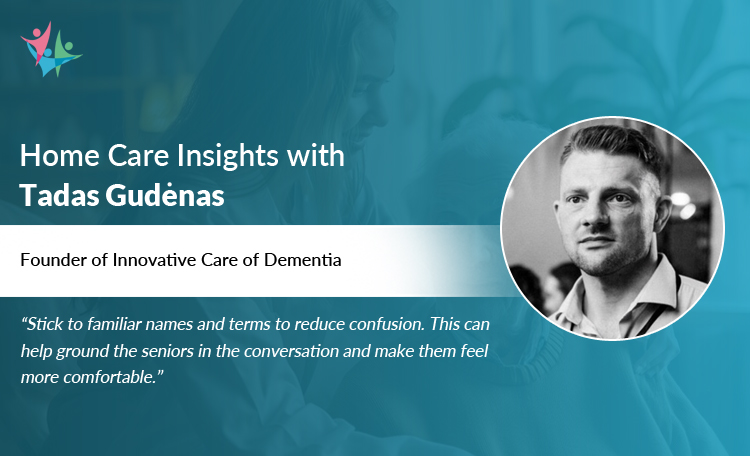Caring for a senior with Alzheimer’s is a bittersweet symphony of love, loss, and resilience. As the familiar melody of their life fades, patience becomes the conductor, guiding us through the changing tempo of their world.
Daily routines transform into a comforting rhythm, providing a sense of security in the face of disorientation. Caregivers and family members become architects, meticulously redesigning their environment into a haven, free from the jarring notes of confusion.
Communication evolves into a poignant improvisation, where words take a backseat to the warmth of a familiar touch, the melody of a cherished song, or the gentle reminder of a faded photograph.
It’s a heartbreaking yet beautiful acceptance – acknowledging the loss of memories while cherishing the echoes of their past. Though the disease may steal their yesterday, caregivers focus on creating moments of joy today, weaving threads of love and support into the tapestry of their care.
To shed some light on the same, we interviewed a home care industry expert to bring his perspective on caring for older adults with Alzheimer’s.

Who Did We Interview?
Tadas is the founder of Innovative Care of Dementia, and is driven by a deep desire to find solutions and support those affected by Alzheimer’s and dementia. His unwavering dedication and passion, combined with the discipline instilled during his military background, drive his search for unique approaches that positively impact the lives of those affected by these conditions.
Let us now delve into what he has to say about providing care to seniors with Alzheimer’s:
As someone who has dedicated their career to supporting individuals with Alzheimer’s, I believe caregivers can make a significant impact through empathy, education, and structured routines. Caregivers should create a safe and supportive environment by removing hazards and establishing a consistent daily routine.
Encouraging physical activity and mental stimulation is crucial, as is staying informed about the disease to better anticipate and manage its progression. My journey exploring a healthy lifestyle has shown me the importance of holistic care, encompassing physical, mental, and emotional well-being.
Absolutely. Based on my experiences, adopting a healthy lifestyle can significantly minimize the impact of Alzheimer’s. It includes a balanced diet rich in nutrients, regular physical activity, and adequate sleep.
From my journey with an autoimmune disease, I’ve learned that managing everyday components like sleep, diet, and exercise can significantly improve overall well-being. For seniors with Alzheimer’s, maintaining an optimistic outlook and engaging in social and cognitive activities are also essential for slowing cognitive decline.
Effective communication with seniors with Alzheimer’s is crucial and should be approached with patience, clarity, and compassion. Drawing from my personal experience with my mother’s diagnosis, I’ve learned several key strategies:
Through my work and personal experiences, I have found that these communication strategies, coupled with a deep sense of empathy and understanding, can significantly improve the quality of interactions with seniors living with Alzheimer’s, fostering a supportive and caring environment.
Yes, making the home safe is crucial. Drawing from my experience, I recommend removing hazards like loose rugs, installing grab bars in bathrooms, and ensuring adequate lighting.
Labeling cabinets and doors can help seniors find things more easily, and simplifying the home layout can reduce confusion. Safety devices like door alarms can prevent wandering. These measures, informed by my passion for creating practical solutions, can significantly enhance the safety and comfort of seniors with Alzheimer’s.
My advice to caregivers is to take care of themselves as well. The journey can be challenging, and it’s important to seek support when needed.
Joining support groups, staying educated about the disease, and building a strong support network are vital steps. From my military background, I’ve learned the importance of discipline and resilience, which are essential in caregiving.
Practicing self-compassion, staying flexible, and using available resources can help caregivers provide the best support while maintaining their well-being.
To conclude, supporting seniors with Alzheimer’s requires a multifaceted approach. Caregivers can create a safe, structured environment with consistent routines.
Encouraging healthy habits, open communication, and Alzheimer ‘s-friendly home modifications contribute to a higher quality of life.
For caregivers, self-care, education, and support networks are crucial to navigate this challenging journey.
Our users reported 95% customer satisfaction in 2024. Schedule a personal walkthrough to see CareSmartz360 in action.